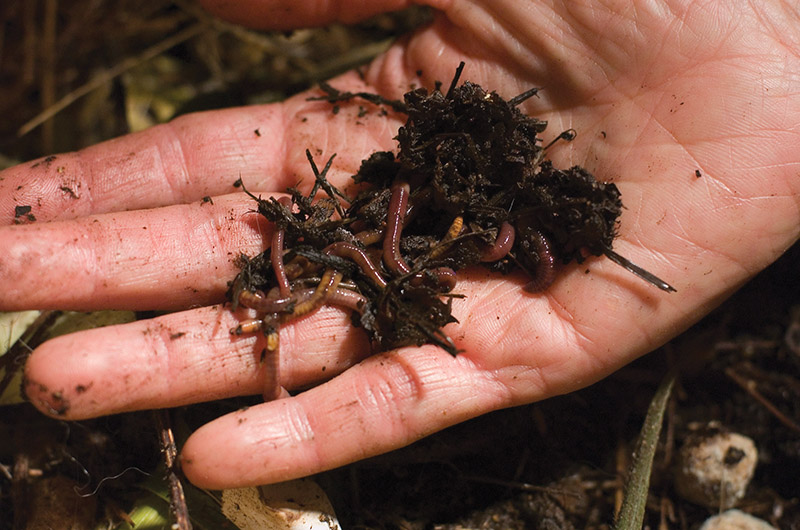Buy Red Wiggler Worms - Perfect for Composting and Horticulture
Buy Red Wiggler Worms - Perfect for Composting and Horticulture
Blog Article
Red Wiggler Worms Demystified: Unlocking the Keys of Vermiculture for Greener Living and Nutrient-Rich Dirt
In the realm of sustainable techniques for improving dirt high quality and promoting eco-conscious living, red wiggler worms play a critical yet often neglected duty. Red Wiggler Worms. Understanding the complexities of caring for these worms, maximizing their atmosphere, and using their castings can lead to a greener way of life and much healthier soil for plants to flourish.
The Duty of Red Wiggler Worms
Red Wiggler worms play an essential role in composting systems by efficiently breaking down raw material right into nutrient-rich castings. These ravenous eaters take in a selection of organic products, such as cooking area scraps, yard waste, and paper products. As they feed, the worms' digestive system processes break down the raw material right into a penalty, dark, and nutrient-dense product understood as worm spreadings or vermicompost.
The castings produced by Red Wiggler worms are very advantageous for soil health and plant growth. They are abundant in crucial nutrients like phosphorus, potassium, and nitrogen, which are crucial for supporting healthy plant growth. Furthermore, worm castings include beneficial microbes and enzymes that aid enhance soil framework, increase water retention, and boost nutrient uptake by plants.
Advantages of Vermicomposting

It boosts dirt framework, improves soil oygenation, and raises soil wetness retention. Vermicompost likewise enhances the dirt with vital nutrients like potassium, nitrogen, and phosphorus, advertising plant growth and total dirt fertility.
Furthermore, vermicomposting supports lasting gardening techniques by providing a chemical-free and natural option to synthetic plant foods. Red Wiggler Worms. This eco-friendly approach not just enriches the soil yet also helps in reducing dependence on unsafe chemicals, promoting a greener and a lot more lasting way of horticulture
Setting Up a Worm Bin
When developing a worm container for vermicomposting, proper arrangement is crucial to guarantee the success of the composting process. The initial step in setting up a worm container is choosing a suitable container. This can be a plastic container or wooden box that supplies enough area for the worms to relocate around and has proper drainage openings to avoid waterlogging. Next, a bed linens product such as shredded paper, cardboard, or coconut coir ought to be included to the container. This bed linens offers a comfy setting for the worms and assists preserve dampness levels.
After including the bedding, introduce the red wiggler worms additional info to the container. The worms should after that be offered with food scraps such as fruit and veggie peels, coffee grounds, and eggshells.
Consistently monitor the moisture levels and temperature in the worm container to guarantee ideal conditions for the worms. With appropriate arrangement and upkeep, the worm container will effectively convert organic waste into nutrient-rich compost for your plants and garden.
Harvesting Worm Spreadings
To effectively collect nutrient-rich worm castings from your vermicomposting system, a systematic harvesting technique is important. When it comes time to harvest the worm spreadings, there are a couple of vital steps to follow to ensure an effective process.

Troubleshooting Common Issues
Identifying and attending to typical difficulties that might emerge throughout the vermicomposting procedure is essential for preserving a healthy and efficient worm bin. Adding excess food scraps can lead to a buildup of moisture and acidity in the worm bin, possibly damaging the worms. An additional concern is undesirable smells originating from the worm container.
Furthermore, if the worm population is declining or the worms appear undesirable, it might be because of ecological stress factors such as severe temperatures or pH levels. Checking these variables and making essential changes is crucial for the wellness of the worms. By repairing these typical problems quickly, vermicomposters can ensure a smooth and successful vermicomposting procedure while preserving a flourishing worm population.

Conclusion
Finally, red wiggler worms play an important role in vermiculture by breaking down raw material right into nutrient-rich soil. The advantages of vermiculture include greener living and boosted dirt quality. Establishing up a worm container is important for effective vermiculture, and collecting worm spreadings gives important garden compost for horticulture. By comprehending and fixing usual concerns, individuals can open the keys of vermiculture for lasting living and much healthier soil.
As they feed, the worms' digestion processes break down the organic issue into a fine, dark, and nutrient-dense material known as worm spreadings or vermicompost.
The castings produced by Red Wiggler worms are extremely advantageous you can check here for dirt health and plant development. Adding excess food scraps can lead to an accumulation of dampness and level of acidity in the worm bin, potentially damaging the worms.In addition, if the worm population is declining or the worms show up harmful, it can be due to ecological stressors such as extreme temperature levels or pH degrees. Setting up a worm bin is essential for effective vermiculture, and gathering worm castings gives useful compost for horticulture.
Report this page